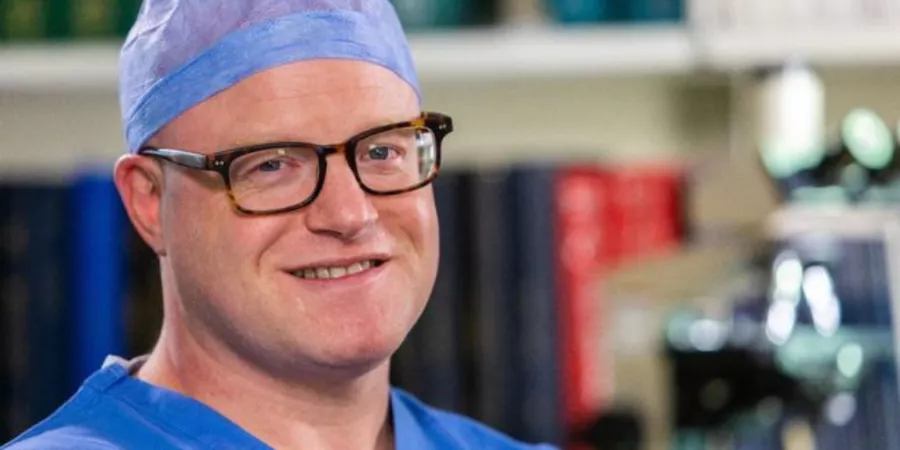Conversations: Mr. Tim Brown, Consultant Transplant Surgeon
Mr. Tim Brown, Consultant Transplant Surgeon, Belfast City Hospital discusses his role and his thoughts on how 3D printing will benefit his surgical specialism in the future.
Q: What attracted you to a career as a surgeon and specifically to specialize in transplant surgery?
We’re all influenced by people we grew up with and I knew a lot of doctors growing up. My parents aren’t medical in any way, but I knew a lot of doctors who were friends of my folks and respected them. I enjoyed the sciences at school and progressed to medical school.
In medical school I loved the anatomical, physiological, pathological sciences as part of studying medicine and in my clinical years I was influenced hugely by a number of very good and very passionate surgeons, so that’s why I went down the path of surgery. In terms of transplantation – it’s an incredible speciality – it has ethics, medicine, immunology, technical surgery and is multi-dimensional and fascinating.
I don’t go to work any day and think it’s going to boring. As well as that, the difference transplantation makes to people’s lives is difficult to underestimate. It is life-saving and transformational to quality of life. Seeing patients who have been sick with tiredness, no quality of life on renal failure and seeing them 3-4 weeks postoperatively in outpatient clinic where their life has been transformed. They have energy, they have no nausea they’re free from the 4 times weekly dialysis treatment – it’s difficult to understate how good that is.
Q: What are the key benefits of your role?
It’s the patients – seeing them come through what they do, is incredible. Because we concentrate so much on living donor surgery, it’s a privilege to see how families interact at times of great stress and seeing how one person will put themselves on the line for another person is mind-blowing. Seeing how families interact and what one person is prepared to do for someone else is a privilege
Q: And the challenges?
In clinical challenges – kidneys are unpredictable and when a kidney procedure doesn’t go the way you’re hoping, it’s hugely stressful for me and for the patient. I hate to see things go wrong but inevitably from time to time, they will go wrong. Thankfully it’s rare, but that’s devastating. In interpersonal challenges, it’s when people don’t see eye to eye. But thankfully the negatives are nothing compared to the positives.
Q: Can you describe a typical day?
Days are either defined by theatre or clinic. If it is theatre, we’ll be in theatre all day. We spend a lot of time taking kidneys out and putting them back in. We also run the regional vascular access service – making fistulas for dialysis, putting dialysis catheters, parathyroid surgery, tummy wall reconstruction for people with hernias… so we have a wide and varied surgical repertoire.
For clinics, we see a wide variety of people, usually with end stage kidney disease and all of the different surgical problems that can bring up. We usually have a number of meetings – talking about the patients and talking about service delivery and then the on-call commitment as well.
I’m on call one week in four, where we are on-call for emergencies on the ward and out of hours transplantation. So I could get a phone call any time of the day or night, offering me a kidney for one of the patients on our waiting list. So there’s never a dull moment.
Q: What is your experience of 3D printing?
My first time using 3D printing, axial3D were extremely accommodating; very keen to deliver a very tailor made service to what my requirements were and seemed to really care about getting it right for us. In terms of working with axial3D, I’ve nothing but the highest praise.
In terms of using the model to define my practice – I think it gave me a real edge especially for a recent kidney case and for another case in a similar situation, I’d certainly be on the phone (to axial3D) looking for a bit more help.
Q: In your opinion, what are the benefits of 3D printing in medicine?
Surgery is 3D and most imaging, (whilst we’ve got reconstructive computer modelling) is still 3D projected onto a 2D screen. I think 3D imaging and 3D modelling gives us actual 3D appearances of what our operation is going to be, so my feeling is that 3D models are going to be best defined in pre-operative planning. Knowing what you’re going into (surgery wise) before you get into that situation.
I think, as a surgeon, if I could cut out as much variability as much indecisiveness, as much ambiguity – that’s what I want and I think that’s what 3D modeling will be able to give me as a surgeon.
Q: What changes would you like to see in your own field for the future?
I think it would be difficult to eradicate end-stage renal disease. However, I would like for us to be able to tailor-make tissue. To be able to come in and take a kidney “off the shelf” and transplant it to someone. If that came along, I’d be happy. I hate seeing people going through dialysis.
Want to ask a question about medical 3D printing? Reach out via the form below.





